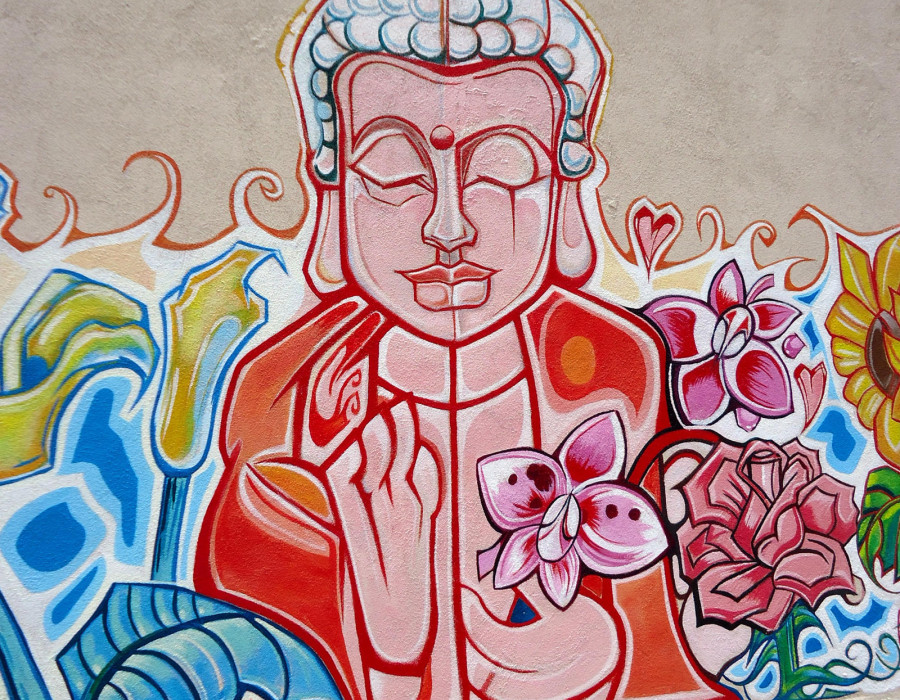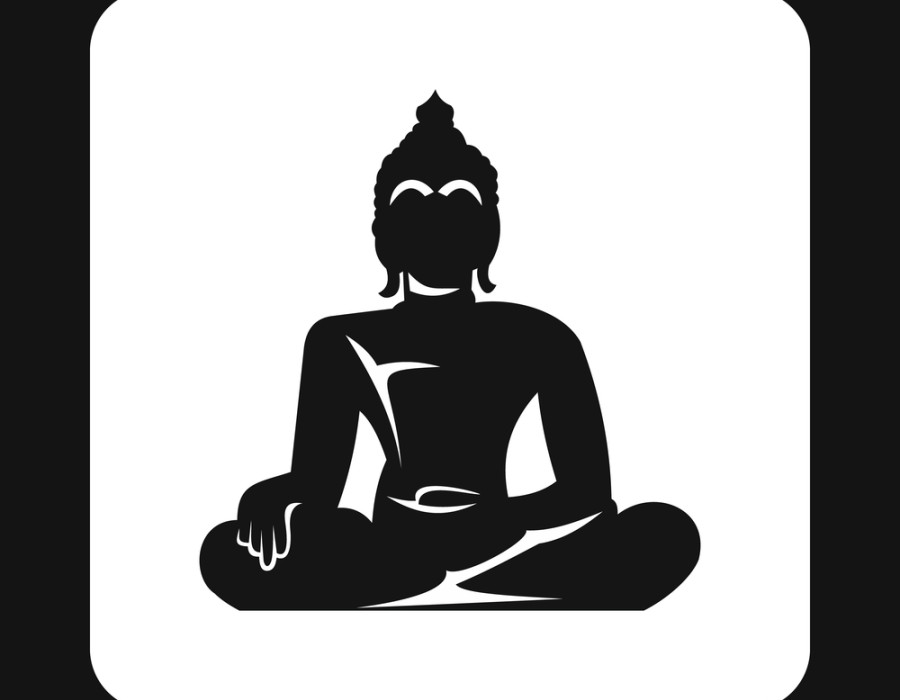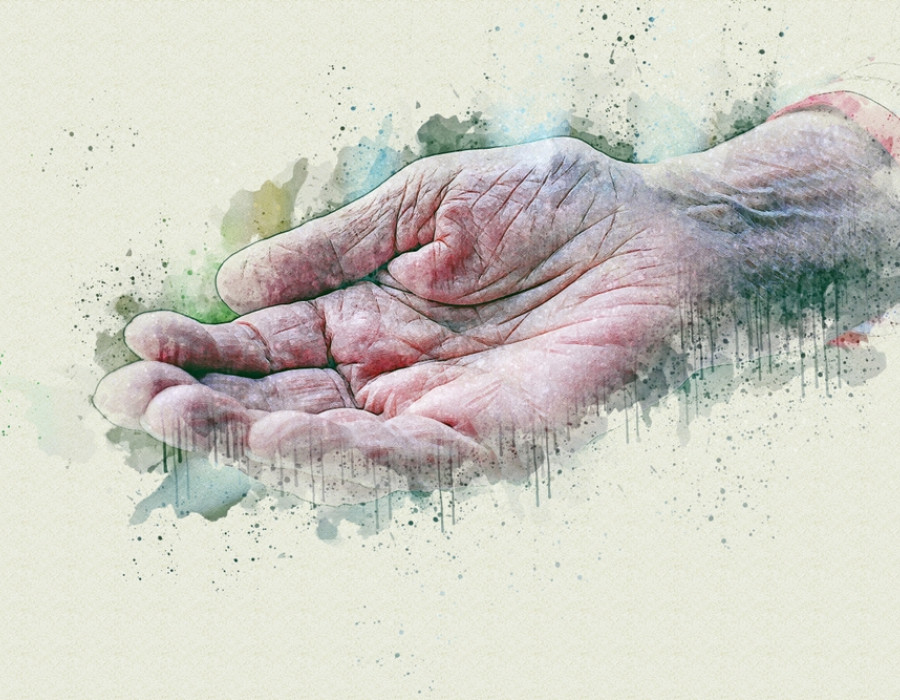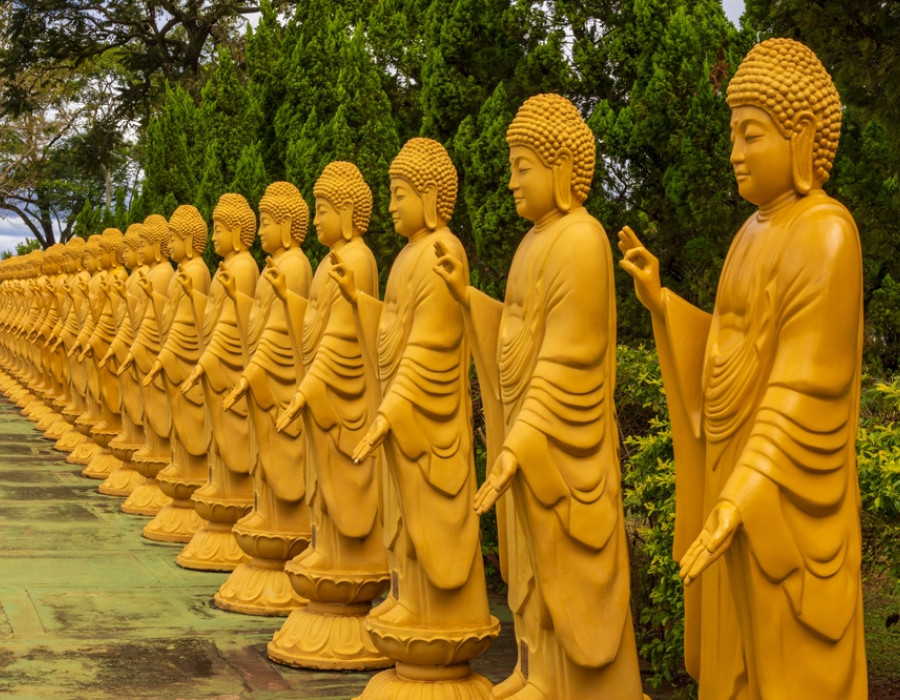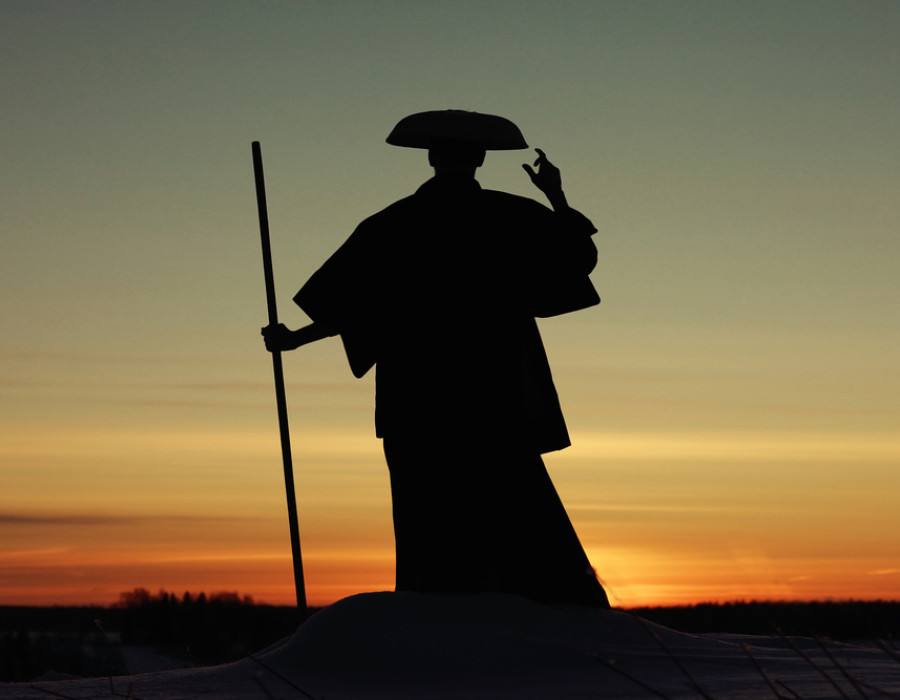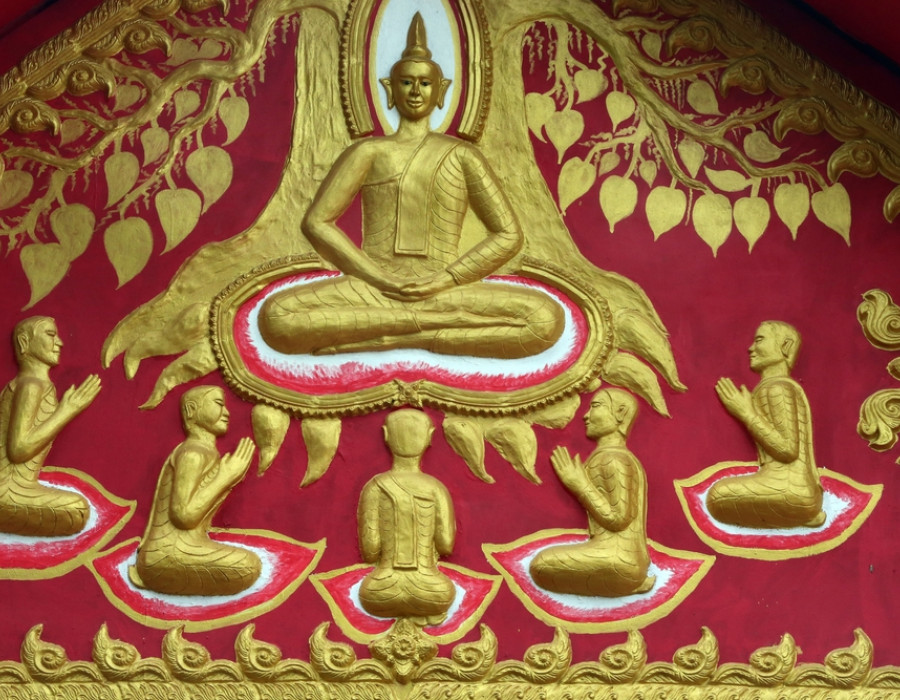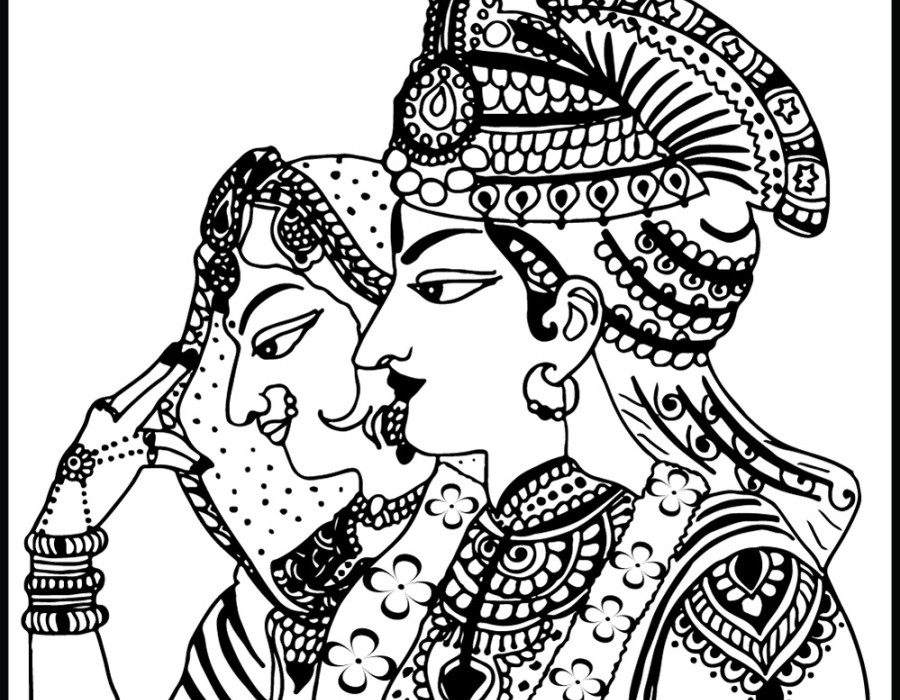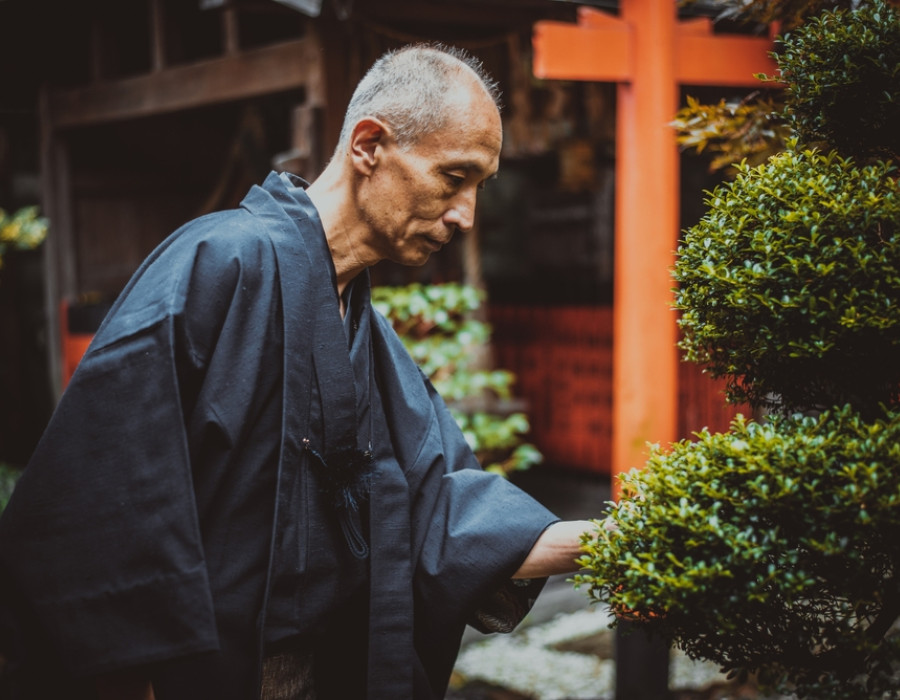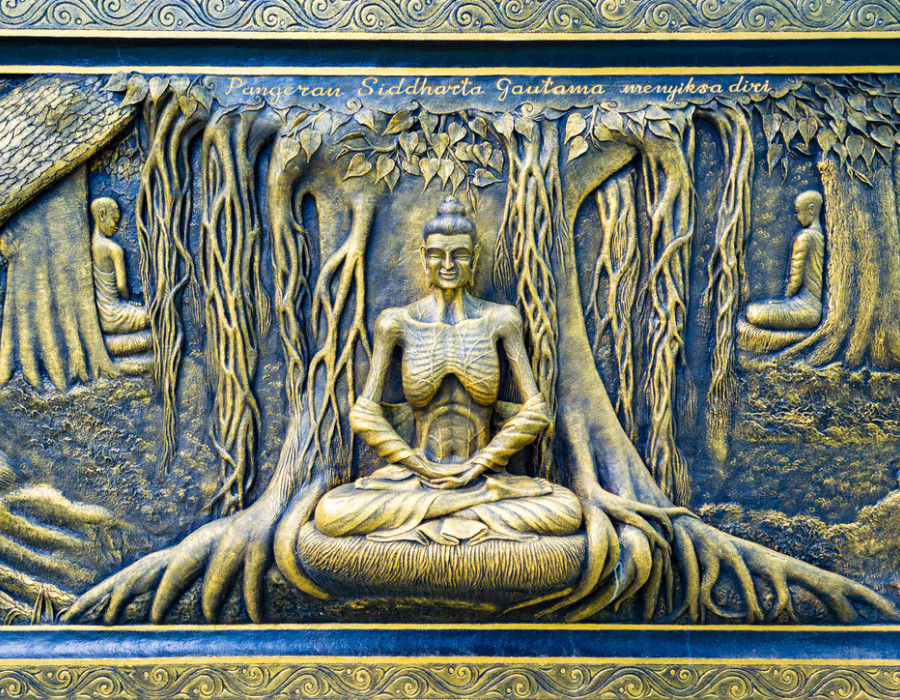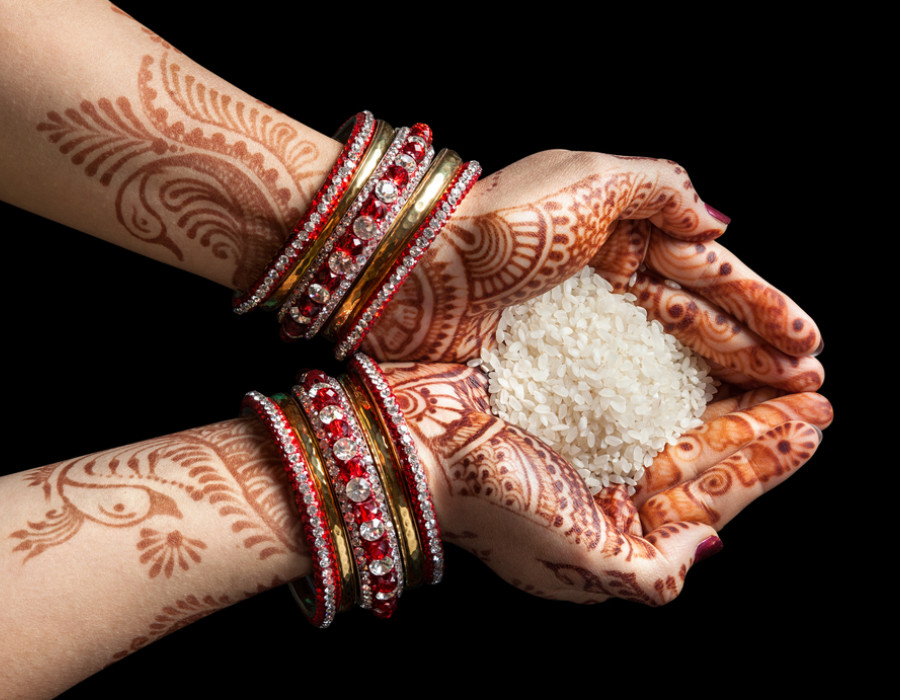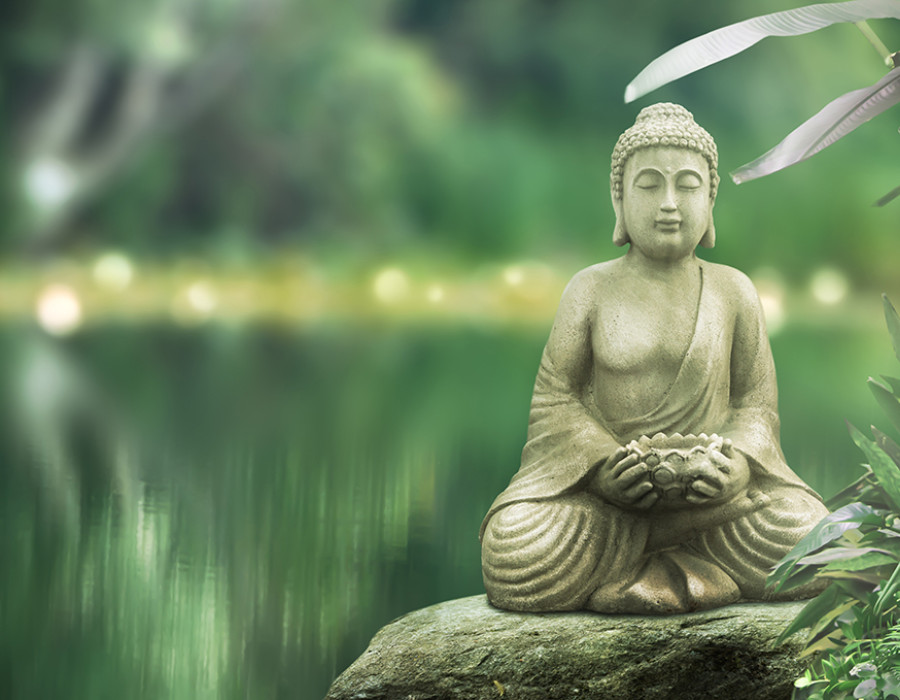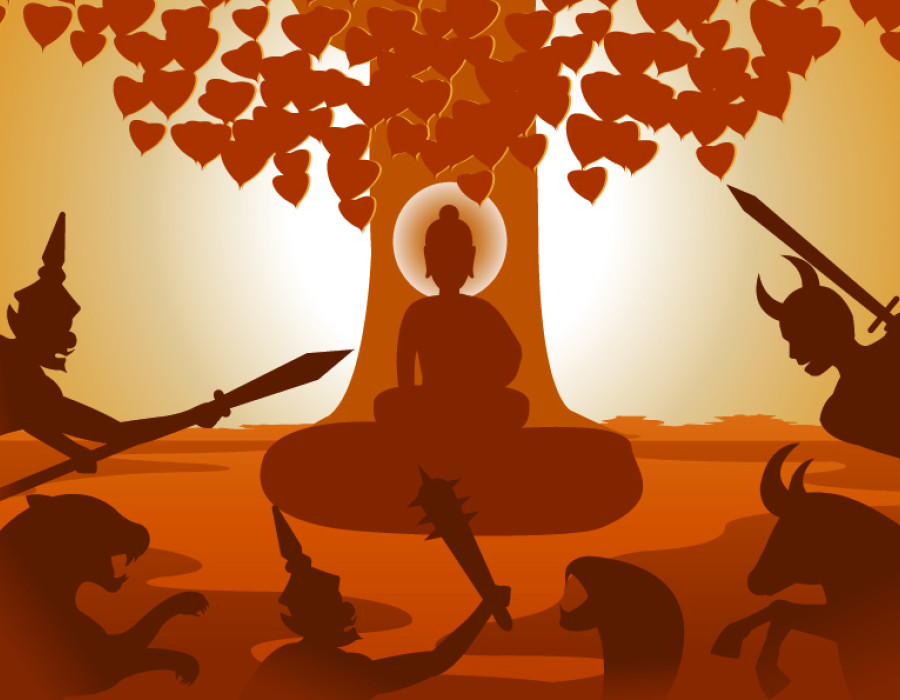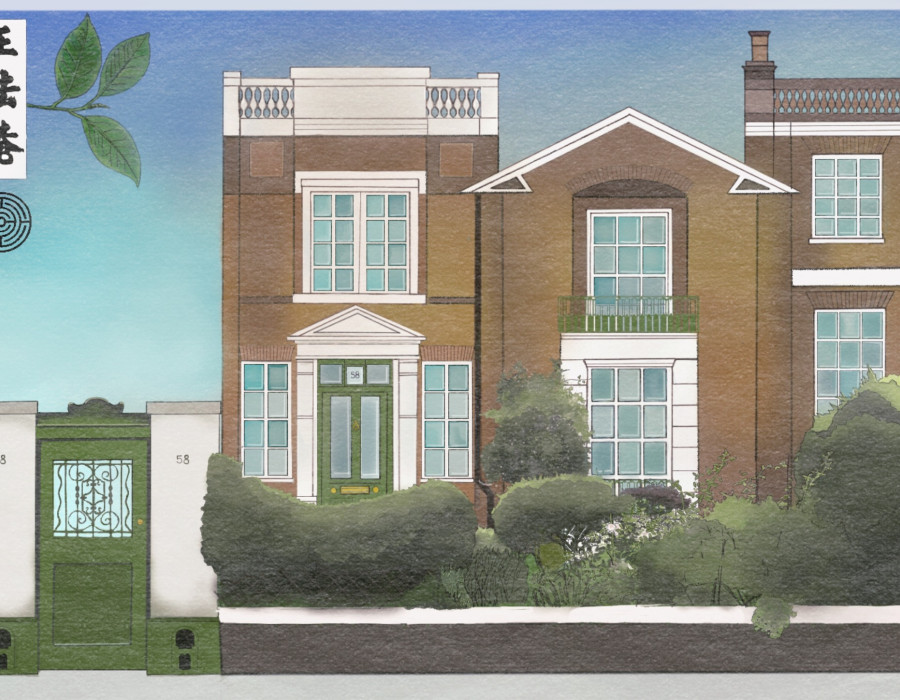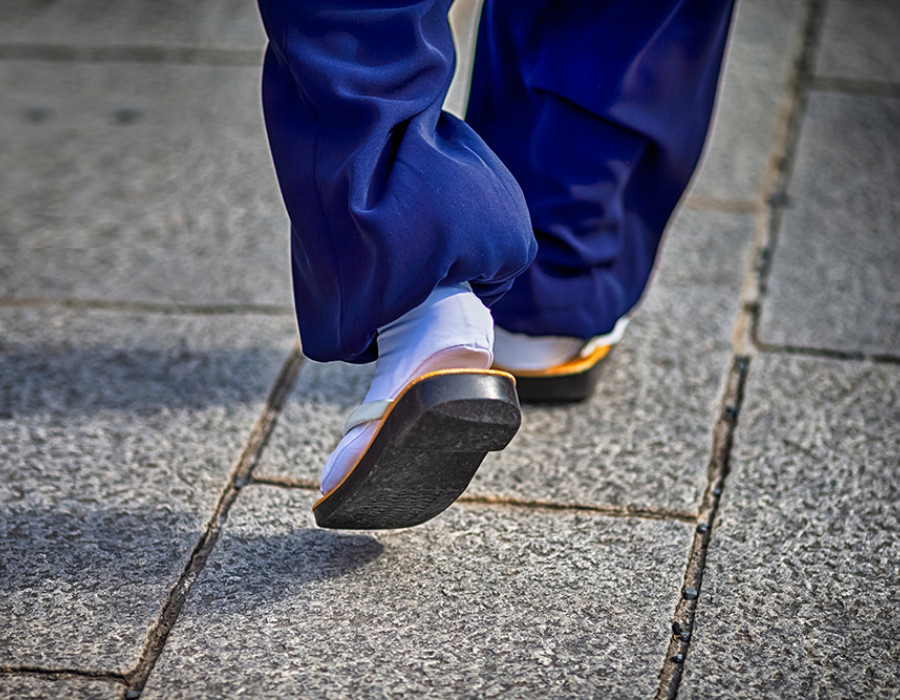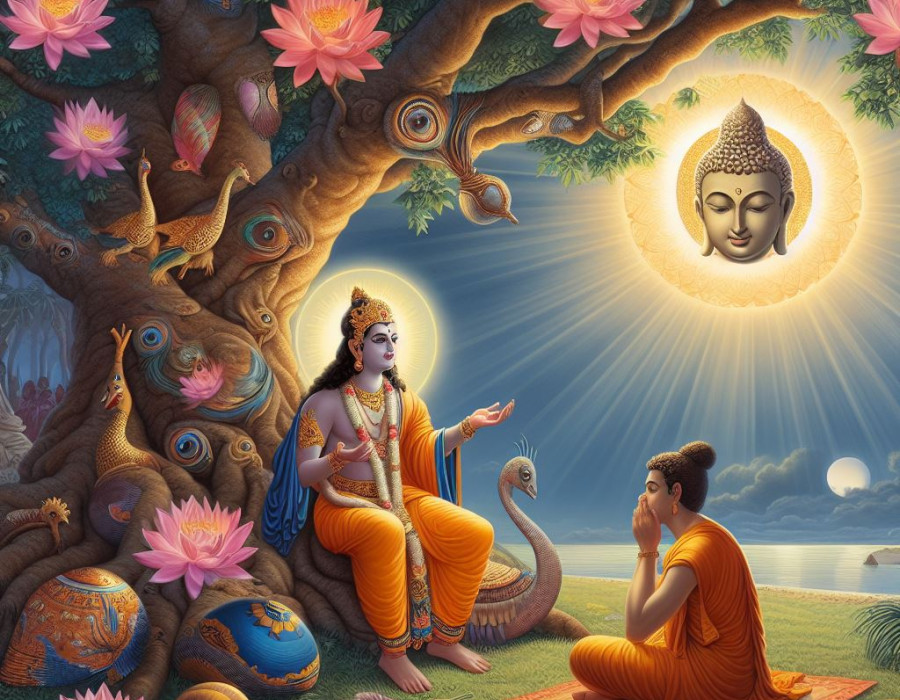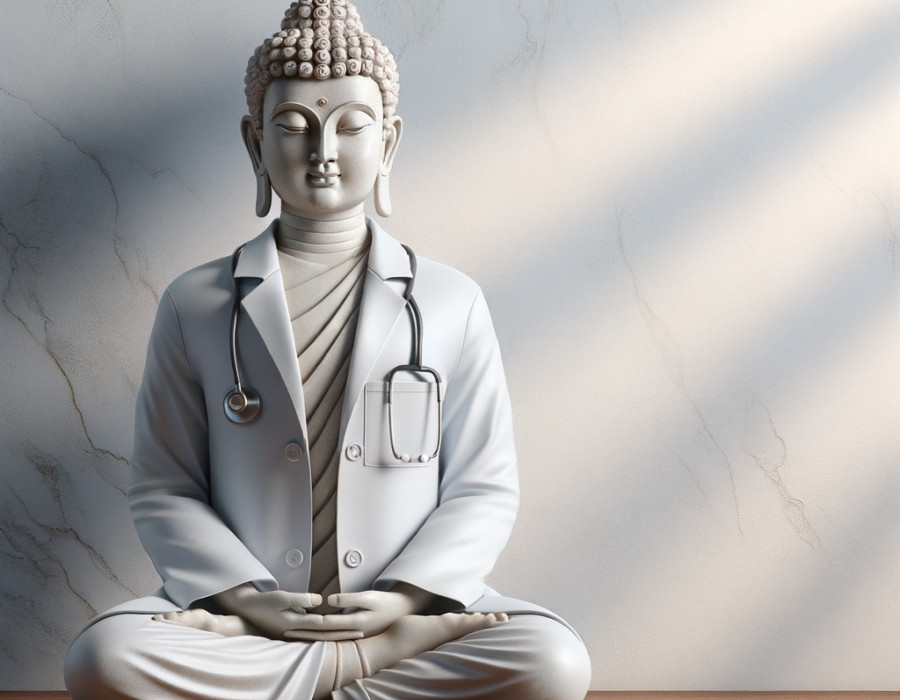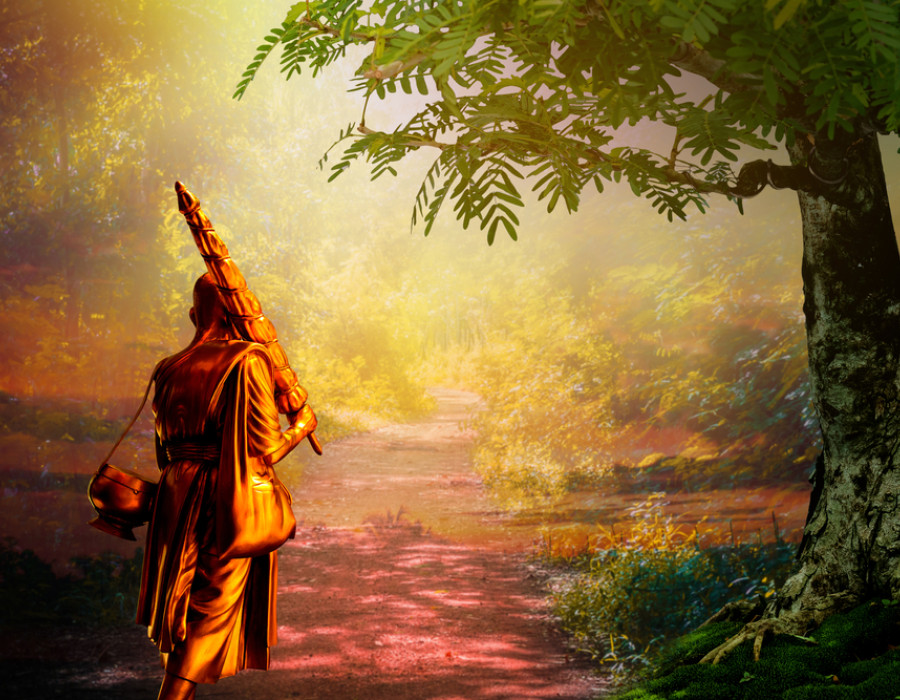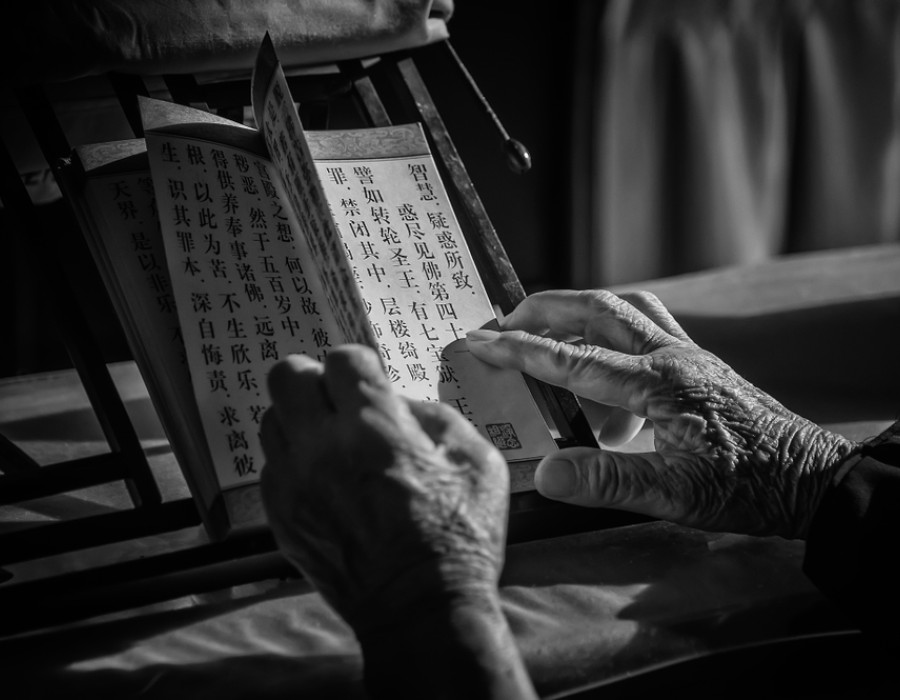23. Dr. Buddha
THE BUDDHA BLOG
Rather than create a new philosophy, the Buddha decides to offer up a cure for old age, sickness and death in one simple formulation.
 ©
© Shutterstock AI
Another Sunday at the Buddhist Society. The Wagamama Five are here and most of the other regulars. There are one or two new faces. Meditation over, Jizo takes up where he left off the last time: talking about his good friend the Buddha.
Siddhartha Gautama, now the Buddha or the Awakened One, is still chilling under the trees beside the river. His heart is free. The spring flowers are everywhere in the pretty clearing and the birds are singing of a new beginning. It’s here that he tries to work out his philosophy so that he can share it with others. Brahma is right. A person who is free from fear and attachment is someone who no longer has to protect himself from others. And a free heart, he now realizes, overflows with love and compassion for the world. It’s a law of nature. So, what can the Buddha do to help others become free too? His own struggle has been huge. There’s too much to say and it all goes against the flow of people always wanting one thing and another. So, the Buddha says to himself, “OK. I’m not going to talk about everything I’ve learned. What’s important is how to be free.”
After the Buddha becomes a great teacher, his monks want him to tell them everything he knows about the world. ‘Does God exist?’ ‘What happens after you die? ’ That sort of thing. He pulls a handful of leaves from a nearby tree and asks the monk:
“ Are there more leaves in my fist or in the forest behind me?” “ In the forest, Lord.”
He points first to the forest and then to his fist and adds:
“ That is what I know. And this is what I teach, because this is all you need to know to be happy and free.”
So, the Buddha decides to keep it simple. People are often unhappy. Many of them are miserable. This is the normal human state of mind. It doesn’t matter how happy and free the Buddha himself is now. He’ll have to start from there. He thinks back on his life as a prince. He had everything life could offer, but there was still something that made him very uneasy from the start. He feared everything was about to change. He knew he couldn’t stop getting old or sick or dying. He couldn’t stop people he loved from being sick or dying either. In the long run he realized that he couldn’t control anything in his life. He was stuck so he looked inside himself and found the real source of his pain. Now that he’s discovered it, there’s not too much he can say about it, but he can at least point the way out of suffering.
So, the Buddha decides he’s not a philosopher and starts thinking more like a doctor. He doesn’t have to go about trying to tell people everything he knows. He just has to look at them and prescribe the right medicine. And he comes up with this clever little formula which he calls the Four Noble Truths:
1) Suffering exists: “Your problem, my friend, is that you’re suffering.”
The fact that we all suffer is not so widely accepted as you may think. People would rather dream about all the nice things that are going to make them happy – forever!
2) Suffering has a cause: “You have a fever.”
You’re on fire because you’re always wanting stuff or wanting to be rid of stuff. You’re sure that all the things you really, really want are going to make you happy. You don’t get them. Or you get them and you don’t want them anymore. Either way, they don’t make you happy for long.
3) There is an end to suffering: “There’s a cure!”
This is the good news. You can end your suffering here and now by giving up all this wanting. It’s like pouring water on the fever. Once you do this, you can cool down and get a better idea of what life’s really about. This is also called nirvana.
4) There’s a way to end suffering: “Let me tell you what to do.”
This is Dr. Buddha’s prescription. It’s what you need to take on the road to recovery. It’s a checklist of things to do when you start to walk down this road. The checklist is a map, which he also calls the Middle Way.
Jizo ends by asking us to please think about the Buddha’s words and to see if they apply to our own life. Then he sounds the gong.
THE BUDDHA BLOG | Michael Haggiag
Books


